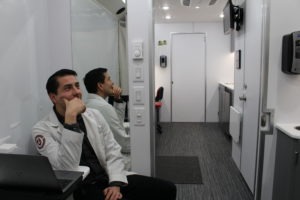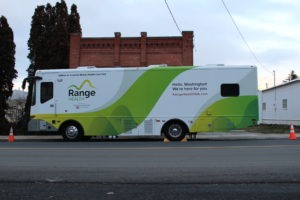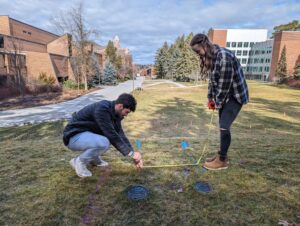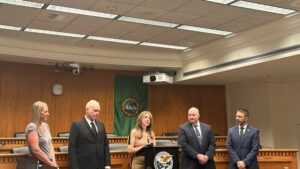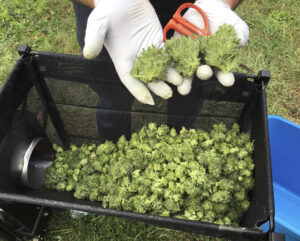ENDICOTT – A Spokane-based mobile health clinic began its trial run in eastern Washington to reduce health disparities in rural areas where healthcare is not available.
Washington State University’s Elson S. Floyd College of Medicine created the William A. Crosetto Mobile Health Care Unit to address needs in rural communities that do not have health providers, said Dr. Luis Manriquez, WSU College of Medicineassistant clinical professor.
“Whenever you can bring services to people, you may help people that otherwise wouldn’t have been seen,” he said.
The clinic is not yet providing all of its treatments but will begin doing so once there is a full staff onboard, set electronic records, and established programs for medical students, said Christina Verheul, WSU College of Medicine director of communication and marketing. The clinic currently has a physician and a driver working on the unit.
The main barriers people in rural areas face when seeking healthcare are transportation, cost and not having clinical facilities nearby, Manriquez said.
The mobile clinic will bill insurance such as Medicare and Medicaid, but it will not turn away patients if they cannot pay. If the latter is the case, the clinic will write off their visit as charity care, Manriquez said.
The unit, which operates under the non-profit network Range Health, provides primary care, urgent care and preventative screenings while also training WSU medical students.
The college’s goal is to build a unit for each of its clinical campuses in Everett, Vancouver, Tri-Cities and Spokane. The objective is to eventually deliver care to all 39 counties in Washington, Manriquez said.
According to a 2019 report by the WSU College of Medicine, eastern Washington counties have higher mortality rates in leading causes of death, such as cancer and heart disease, than the west side of the state. These health disparities are influenced by poverty, rurality and access to health care, according to the report.
Planning for the mobile unit began in 2015, Verheul said. The unit cost around $1 million to construct and operate, which was donated by an Othello farmer, Crosetto, after his death in 2018. He also left millions to other foundations and programs that benefit rural medical care. Crosetto didn’t have a family and his wealth came as a surprise to many who worked with him, she said.
There is funding to purchase a second unit, which is expected to be operational in 2021, she said. The college also has funding from various donors that contribute to the mobile clinic program for the next 5 to 10 years, Verheul said.




